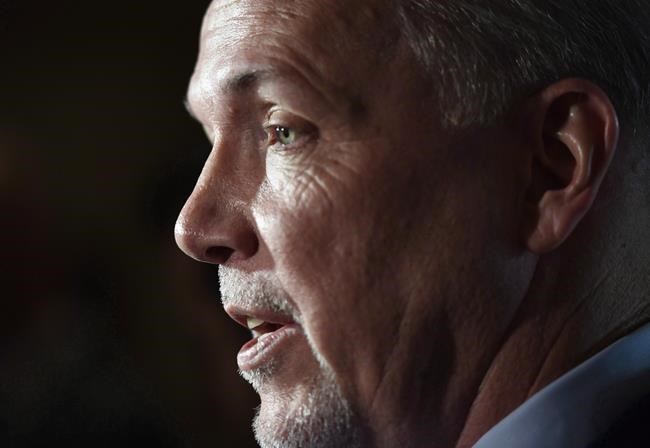The NDP minority government wrapped its first legislative session on Thursday with the passage of a bill that could change the way British Columbians elect governments.
The bill sets the stage for a mail-in referendum next year on whether to replace the current first-past-the-post voting system with a form of proportional representation.
The referendum will take place before the end of November 2018. If more than 50 per cent of voters support a new system, it will be used to conduct the next scheduled election in 2021.
Premier John Horgan cited the electoral reform bill as a highlight of the fall sitting, along with legislation to toughen rules for lobbyists and ban union and corporation donations to political parties.
“I firmly believe that changing our electoral system from the first-past-the-post to another better way to ensure that every vote matters is critical to fuller participation in our democratic processes,” he said.
The Liberals, however, accused the NDP and Greens of rigging the vote in favour of proportional representation.
“The notion that British Columbians would be consulted on something like electoral reform is not, in and of itself, offensive; we did it twice,” said Opposition house leader Mike de Jong.
“The way the government is proposing to do that is offensive. It is manipulative. It is designed to elicit a particular result for the worst reason of all, and that is to advance a partisan agenda.”
The Liberals also attacked the NDP for failing to deliver on key campaign promises — including $10-a-day daycare and a $400 renters’ rebate — in the current session.
B.C. Green Party Leader Andrew Weaver saw things differently, describing the fall sitting as productive, successful and marked by a “refreshing” level of co-operation between the Greens and the NDP.
The two parties signed a deal in May that would allow the NDP to run the province with support from the three Green MLAs on confidence and budgetary motions that, if defeated, could cause a government to fall.
Weaver said he has established a good working relationship with Horgan despite their differences prior to the election and the fact they still disagree on a number of issues.
“We push back where we can and we’re trying to nudge the government in a direction that we like,” he said, calling the move to ban big money an “exciting” change for the province.
Having successfully navigated the first session, Weaver said he’s confident the NDP-Green alliance will survive until the next election.
“It’s going to go four and a half years. Without a doubt,” he said.
“We don’t agree with everything, but we enjoy our working relationship. It’s refreshing. It’s honest and it’s forthright. So I can see four and a half years of this.”



